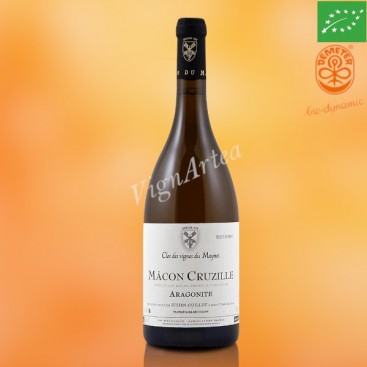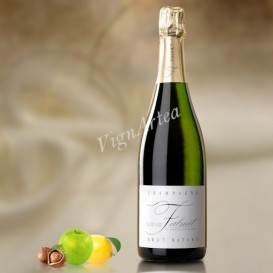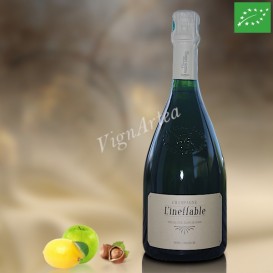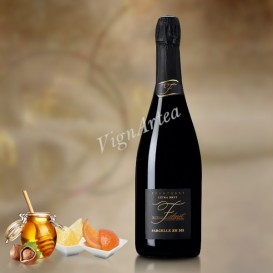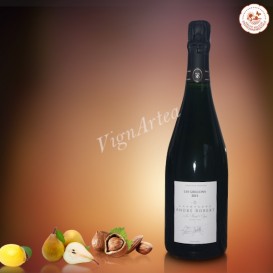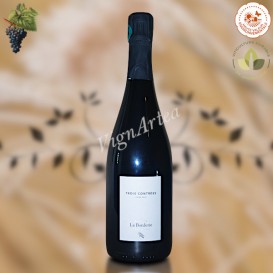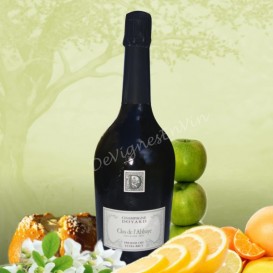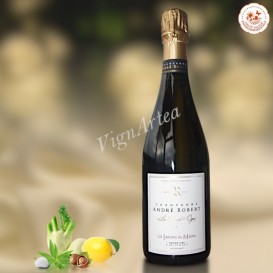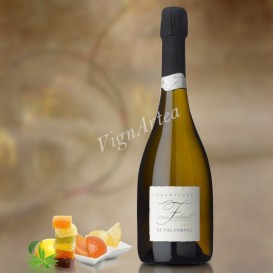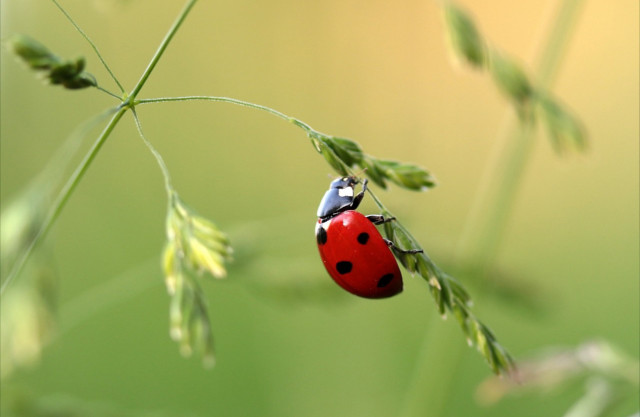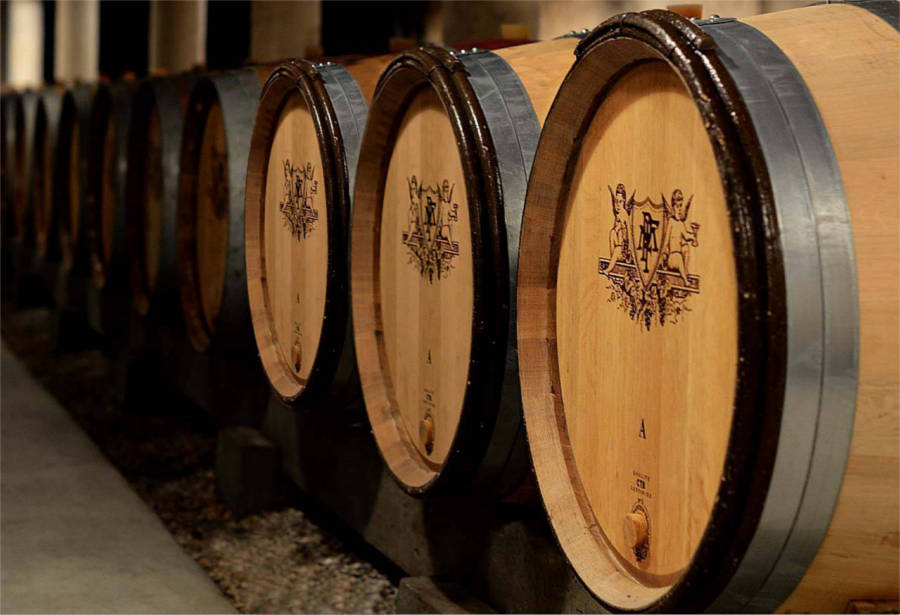ARAGONITE 2021 (Julien Guillot - Vignes Du Maynes)
BOURGOGNE - AOP MÂCON-CRUZILLE - WHITE WINE
Grape variety: Chardonnay (100%)
Biodynamics Native yeasts
Lees ageing in demi-muid for 10 months
- Nose: intense. Creamy notes, aromas of white flowers, lemon, green apple, almond with a touch of fennel.
- Palate: fresh and tonic, salivating and perfumed. Nice aromatic persistence in the finish.
- Tasting date: January 2023.
- OUR OPINION: as usual, it is superb. This vintage is generous, tasty and tonic. Excellent!
The ARAGONITE cuvée is one of the estate's two signature cuvées. Perfectly balanced, it offers a rare energy. The grapes come from a place called "Le Clos des Vignes du Maynes", an historic wine-growing area formerly cultivated by the Cluny monks from the year 910.
TERROIR
The Chardonnay vines of the ARAGONITE cuvée are planted at a place called Le Clos des Vignes du Maynes, on a soil dating from the Middle Jurassic and whose formation took place in the Upper Bathonian, 165 million years ago.
The substrate which outcrops at this place is called flaggy Bathonian limestone, a limestone sedimentary rock of fossiliferous origin containing many shells debris which give it iridescent reflections.
This geological formation testifies to a relatively high hydrodynamics : the region was then covered with a shallow and rough sea. The mother-of-pearl contained in the fossil debris is the aragonite, one of the limestone minerals that make up the laggy Bathonian limestone and which give rise to the eponymous cuvée.
WINEGROWING & WINEMAKING
The Chardonnay vines giving birth to the ARAGONITE cuvée come from a mass selection, a cutting technique allowing to genetically preserve all the characteristics of the mother plant. Their yield does not exceed 35 hl/ha, which gives very concentrated and aromatic grapes. They have been cultivated according to the Biodynamics principles since 1998, and the grapes are picked manually. Sorting is done on site in the vineyard, an additional sorting on a vibrating table in the winery can be made if necessary.
The grapes are then pressed by a slow and gentle pressing that can last from 4 to 6 hours. The juice which flows from it is then left in its tank for a settling operation which lasts from 6 to 18 hours as needed.
The must is then transferred into 600-liter demi-muids to carry out its alcoholic and malolactic fermentations with native yeasts and bacteria, followed by a fine lees ageing phase for 10 months.
Once the maturation phase is finished, the musts are all blended in the same vat where they remain for 40 days. A low dose of sulphits is added at the time of bottling.
SPECIFIQUE NFORMATION
The ARAGONITE cuvée is vinified with little sulfites and bottled without filtration. It may therefore present a slight cloudiness in the glass, and should not be exposed to heat but kept in a cool cellar.
| Country | Burgundy |
| Color | White |
| Orange wines | No |
| Clay amphorae wines | No |
| Type | Dry |
| Vintage | 2021 |
| Capacity | 75 cl |
| Single Grape Variety | Chardonnay |
| Alcohol rate | 12,5 % |
| Quality Designation | Mâcon-Cruzille |
| Cellar Potential | 10 years |
| Service advise | 10-12°C (50°F-54°F). Open 1/4 hr before the service. |
| Culture Methods | Biodynamic |
| Fining | No |
| Filtering | No |
| Comments | Manual harvest. Native yeasts. Fermentations and lees ageing in demi-muid for 10 months. No fining, no filtering. Slight sulphits addition at the bottling. |

